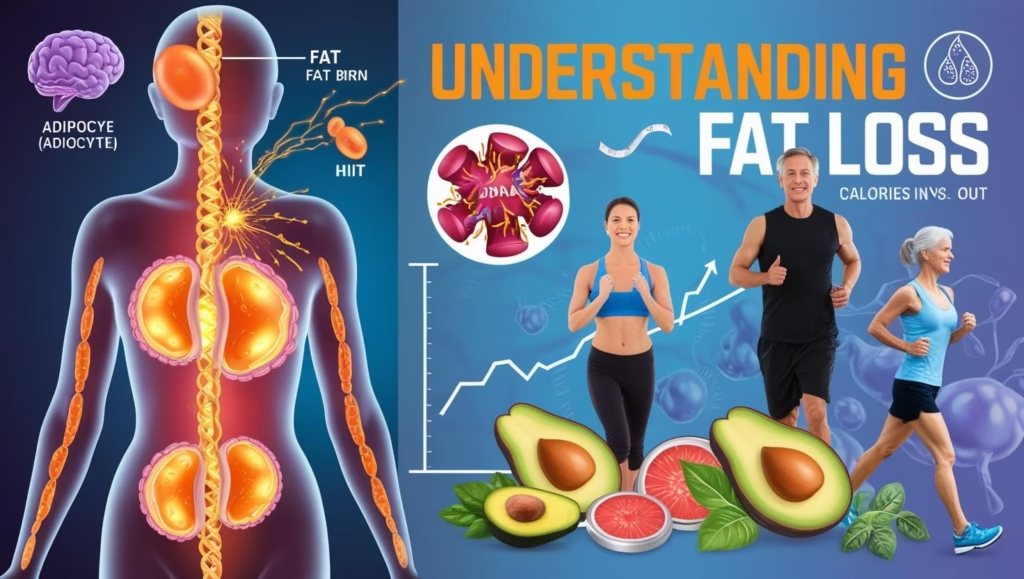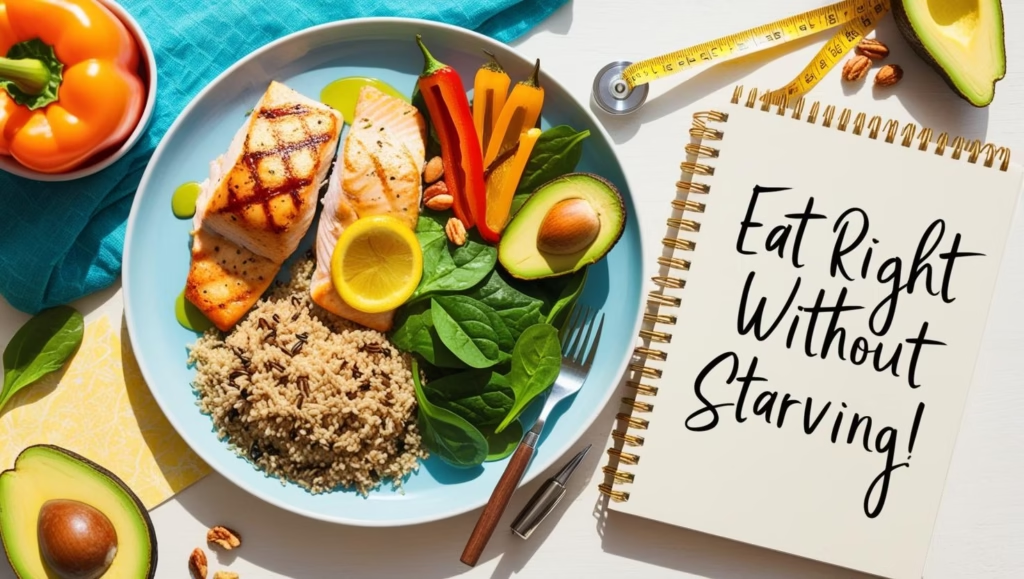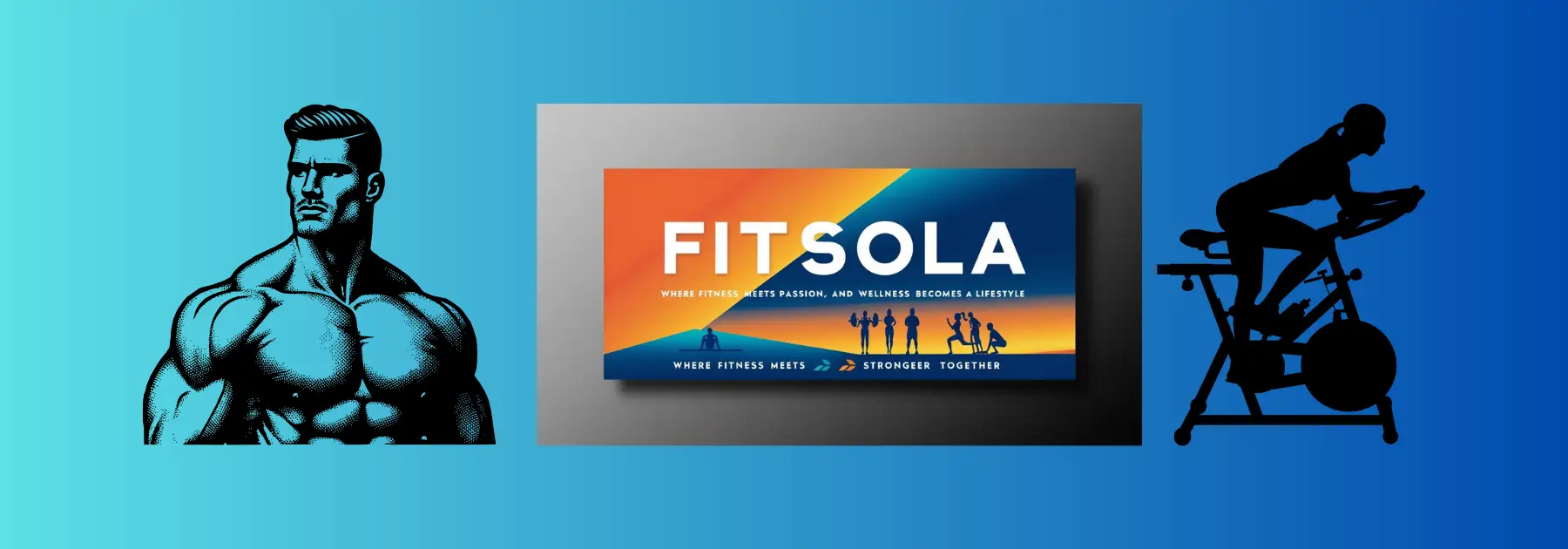Introduction to the 30-Day Fat Loss Challenge
The 30-Day Fat Loss Challenge is designed as a structured and supportive program that promotes healthy weight loss through sustainable practices. In this era of quick fixes and extreme diets, this Fat Loss Challenge aims to provide a balanced approach to achieving fat loss without resorting to starvation or other harmful methods. Participants are encouraged to make gradual, consistent changes in their eating habits and activity levels, fostering a sense of long-term commitment to health and wellbeing.
One of the primary objectives of the 30-Day Fat Loss Challenge is to facilitate a safe body transformation that does not compromise nutritional needs. Unlike fad diets that often promise rapid results through severe calorie restrictions, this challenge prioritizes sustainable weight loss strategies. It emphasizes the significance of nourishing the body rather than depriving it, ensuring that participants can achieve their fat loss goals while still enjoying a variety of foods.
In participating in the challenge, individuals not only focus on the immediate benefits of losing weight but also on the development of healthy habits that can last long after the 30 days are completed. This emphasis on sustainable change is crucial, as research suggests that habits formed over time are more likely to contribute to lasting results in body composition and overall health.
Furthermore, the 30-Day Fat Loss Challenge fosters a community environment where participants can share their experiences, challenges, and successes with others who are on similar journeys. This sense of accountability and support can be a motivating factor that enhances adherence to the program. Thus, the challenge serves as a valuable entry point into a healthier lifestyle, allowing individuals to not only lose fat but also to enhance their overall quality of life.
Understanding Fat Loss: The Science Behind It
The process of fat loss is rooted in biological and metabolic principles, primarily revolving around the concepts of calorie balance and energy expenditure. Fat, as an energy source, is stored in adipose tissues once the body consumes more calories than it burns — a state known as a calorie surplus. Conversely, fat loss occurs when a calorie deficit is created, which means that the body is burning more calories than it takes in. This essential principle underscores the core of the 30-day fat loss challenge.
Metabolism plays a pivotal role in determining how effectively the body utilizes energy. It refers to all chemical reactions in the body that convert food into energy. Factors affecting metabolism include age, sex, muscle mass, and activity level. Individuals seeking to optimize their fat loss should consider boosting their metabolism through resistance training and other physical activities. These activities not only burn calories during exercise but can elevate metabolic rates post-exercise, significantly contributing to overall fat reduction.
Macronutrients — proteins, fats, and carbohydrates — are also fundamental components in the fat loss journey. Each macronutrient serves a unique role in maintaining a balanced diet. Proteins are crucial for muscle repair and growth, aiding in the preservation of lean body mass during weight loss. Fats, on the other hand, are essential for hormone regulation and nutrient absorption. Carbohydrates are the body’s primary energy source; however, monitoring their intake can directly impact fat metabolism. Understanding the balance and function of these macronutrients will allow participants in the challenge to make informed choices tailored to their nutritional needs.

By comprehending these scientific fundamentals — calorie deficit, metabolism, and the role of macronutrients — individuals will be well-prepared to implement practical strategies throughout the fat loss challenge, enhancing their chances of success.
Setting Realistic Goals for the Challenge
Participating in the 30-Day Fat Loss Challenge requires setting goals that are not only ambitious but also realistic and attainable. One effective framework for establishing these goals is the SMART criteria, which stands for Specific, Measurable, Achievable, Relevant, and Time-bound. By adhering to this method, participants can create clear intentions that lead to successful outcomes and a meaningful body transformation.
Firstly, specificity is essential. Rather than stating a vague goal such as “I want to lose weight,” participants should articulate precise objectives like “I aim to lose 5 pounds in the next 30 days.” This clarity helps maintain focus and motivation throughout the challenge. Next, ensure your goals are measurable. Including parameters allows one to track progress easily, making it possible to adjust your efforts if needed. For instance, a goal could be “I will exercise at least 30 minutes a day, five times a week” or “I will consume a maximum of 1,200 calories daily.”
Achievability is another critical component. It is crucial to set goals that are within reach based on your current lifestyle and commitments. Assess personal circumstances, and if necessary, adjust goals to remain realistic while still challenging. Additionally, ensure that your goals are relevant to your overall health and fitness journey. Align them with your personal motivations—whether it is improved energy levels, enhanced physical appearance, or better mental health.
Finally, incorporating a time-bound aspect creates a sense of urgency and accountability. The 30-day timeframe of this challenge serves as an excellent period for making tangible progress. Regularly tracking your progress will also enhance your experience during the challenge. Utilize journals, mobile apps, or fitness trackers to document your daily practices, keeping you engaged and motivated as you work towards your body transformation goals.
Nutritional Guidelines: Eating Right Without Starving
Embarking on a fat loss challenge does not necessitate extreme dieting or feelings of deprivation. Instead, developing a sustainable nutritional strategy focused on whole foods can promote effective fat loss while keeping you nourished and satisfied. This approach emphasizes balanced meals, portion control, and staying adequately hydrated.

To begin, focus on incorporating whole foods into your daily meals. These include fruits, vegetables, whole grains, lean proteins, and healthy fats. Each food group plays a critical role in providing essential nutrients and maintaining energy levels. For instance, when planning meals, consider a combination of quinoa, grilled chicken, and a variety of sautéed vegetables, topped with a drizzle of olive oil. This meal exemplifies a balanced plate rich in protein, fiber, and healthy fats that can facilitate fat loss.
Additionally, portion control is vital for successful weight management. Being mindful of serving sizes will help prevent overeating and ensure that caloric intake is appropriate for your fat loss goals. One effective strategy is to use smaller plates, which can create the illusion of fuller servings, thus aiding in controlling portion sizes without reducing food choices.
Moreover, snacking is often perceived as detrimental to weight loss; however, healthy snacks can provide necessary energy and stave off hunger. Options such as Greek yogurt with berries, a handful of nuts, or sliced vegetables with hummus can satisfy cravings while aligning with your nutritional goals.
Finally, staying hydrated is crucial in any fat loss endeavor. Proper hydration not only supports metabolic processes but can also help curb hunger, as thirst is often confused with hunger. Aim for at least 8 glasses of water daily, and consider incorporating herbal teas or infused waters for added variety.
By adhering to these nutritional guidelines, participants in the 30-Day Fat Loss Challenge can create a healthy eating plan that not only supports fat loss but also fosters a positive relationship with food.
Exercise Recommendations: Finding What Works for You
Engaging in regular physical activity is essential for anyone participating in a fat loss challenge. Various exercise modalities cater to different fitness levels, ensuring that everyone can find an appropriate routine. It is important to select exercises that not only align with your current capabilities but also resonate with your personal interests, as this will enhance motivation and adherence in the long run.
For beginners, incorporating low-impact exercises such as brisk walking, cycling, or swimming can be an excellent starting point. These activities provide cardiovascular benefits while minimizing stress on the joints. Additionally, beginners may consider incorporating bodyweight exercises like squats, lunges, and push-ups to develop strength and improve overall body conditioning.
For those at an intermediate level, incorporating strength training with resistance bands or weights can significantly boost fat loss and muscle definition. Programs such as circuit training, which combines strength exercises with cardio intervals, can maximize calorie burn while improving endurance. High Intensity Interval Training (HIIT) is another effective option, as it alternates short bursts of intense activity with periods of rest or lower intensity, facilitating significant fat loss in a short duration.
Advanced participants may explore further variations, such as Olympic lifting, CrossFit, or advanced Pilates for a more challenging experience. It is crucial to incorporate a mix of exercises targeting different muscle groups to promote balanced development and prevent injuries. Always prioritize proper form to maximize benefits from each workout.
Ultimately, finding exercise routines that you enjoy will foster sustained engagement and contribute to long-term success. Explore different activities, join classes, or work with a trainer to discover what works best for you. By integrating enjoyable physical activities, you will not only enhance fat loss but also establish a healthy lifestyle rooted in daily movement.
Mindset Matters: Staying Motivated Throughout the Challenge
Embarking on a fat loss challenge can be both physically and mentally demanding. The mindset you cultivate plays a crucial role in your success. Maintaining motivation throughout the 30-day journey requires awareness and proactive strategies to navigate common obstacles such as cravings, temptations, and motivation dips. Recognizing that these challenges are part of the process can empower you to tackle them head-on.
One effective technique to enhance your mental fortitude is to set realistic and specific goals. Breaking down your 30-day fat loss journey into smaller, manageable milestones can help you stay focused and motivated. For instance, instead of solely concentrating on a specific weight target, aim for achievements like completing a certain number of workouts each week or incorporating more fruits and vegetables into your diet. Each small victory can reinforce your commitment and make the overall challenge feel less daunting.
Creating a supportive environment is another critical factor in maintaining a positive mindset. Surround yourself with encouraging friends or family members who understand your goals. Consider sharing your intentions on social media or participating in online communities where others are pursuing similar challenges. This accountability not only provides encouragement but can also inspire you through the shared experiences of others.
Additionally, cultivate practices that promote self-reflection and positivity. Journaling your thoughts and progress can serve as a powerful tool for assessing your journey, helping you to identify patterns in your mindset and emotions. This awareness allows for proactive adjustments, enabling you to celebrate progress over perfection. Remember, setbacks are normal; your ability to bounce back and refocus will define your success in this fat loss exploration.
Tracking Your Progress: Tips and Tools
Tracking progress is a crucial aspect of any fat loss journey, particularly during a structured endeavor like the 30-Day Fat Loss Challenge. Effective monitoring can provide insight into what is working, what needs adjustment, and how to maintain motivation throughout the process. Various tools and techniques can significantly enhance the visibility of your fat loss progress while ensuring you remain committed to your goals.
One of the most effective methods for tracking is the use of food diaries. Maintaining a detailed food diary involves logging everything you consume, including meals, snacks, and beverages. This practice not only helps you assess calorie intake but also allows you to identify patterns in your eating habits. Writing down meals increases awareness of portion sizes and food choices, which is essential for achieving fat loss while ensuring nutritional balance.
In addition to food diaries, mobile apps represent a modern solution to tracking your progress. Numerous nutrition and fitness apps are available that enable users to log their food intake, exercise routines, and even water consumption. By integrating features like barcode scanning and meal suggestions, these apps provide a comprehensive overview of dietary habits, making it easier to stay within the parameters of your fat loss objectives.
Visual progress tracking also plays a vital role in the journey. Regularly taking photos can provide a tangible representation of physical changes over time, often revealing transformations that may not be apparent in daily reflections. When combined with measurements of weight or body circumference, visual tracking aids in capturing the complete picture of progress towards fat loss goals.
Regular self-reflection is equally paramount. Set aside time each week or bi-weekly to review your tracked data and assess what strategies have yielded positive results and which may require adjustments. This process will not only facilitate accountability but will also help in customizing your approach to ensure sustained success throughout the challenge.
Post-Challenge: Maintaining Your Results
Completing a fat loss challenge can be a significant accomplishment, but the journey does not end there. Maintaining the results achieved during the 30-Day Fat Loss Challenge requires a careful approach to lifestyle changes that promote continued health and well-being. A fundamental aspect of sustaining fat loss is the integration of healthy eating habits developed during the challenge into daily routines. This means prioritizing nutrient-dense foods, such as fruits, vegetables, lean proteins, and whole grains, while minimizing processed foods high in sugar and unhealthy fats.
Regular exercise remains crucial in the maintenance phase. Continuing a structured physical activity regimen will not only help in sustaining fat loss but also contribute to overall fitness and energy levels. Engaging in a mix of cardio, strength training, and flexibility exercises is recommended to support metabolic health and body composition. Setting realistic fitness goals and progressively challenging oneself can maintain motivation and ensure consistent progress.
Additionally, cultivating a supportive mindset is essential for preventing weight regain. This involves shifting the focus from weight loss to fostering a healthy lifestyle that emphasizes wellness. Practicing mindfulness around eating and body image, as well as identifying emotional eating triggers, can help individuals stay on track. Surrounding oneself with a supportive community, whether through friends, family, or social media groups, can also provide encouragement and accountability.
To ensure lasting change, it is important to transition the lessons learned from the challenge into long-term habits. This could include meal prepping to avoid impulsive food choices, keeping a food journal to track progress, or trying new healthy recipes to keep meals exciting. By adopting these strategies, individuals can build a sustainable lifestyle that not only maintains fat loss results but also enhances overall health and happiness.
Conclusion: Your Journey to a Healthier You
Participating in the 30-Day Fat Loss Challenge is more than merely shedding excess weight; it is a comprehensive journey toward enhanced well-being and positive body image. Individuals who have committed to this challenge often report significant physical, mental, and emotional transformations. The challenge promotes not only weight loss but a holistic approach to health that emphasizes balanced nutrition, regular physical activity, and a supportive community. Throughout the month, participants learn to create healthier habits that contribute to sustainable weight management and overall wellness.
One of the most vital takeaways from this experience is the importance of body positivity. In a society often focused on appearance, the 30-day challenge encourages participants to appreciate their bodies for what they can achieve rather than how they look. As individuals embark on their fat loss journey, they gradually build self-confidence and a more profound sense of self-worth. This shift in mindset paves the way for a healthier relationship with food and exercise, resulting in long-lasting lifestyle changes.
Moreover, the knowledge gained during these 30 days equips participants with the tools needed to continue their health journey beyond the challenge. Whether it’s meal planning, exercise routines, or mindfulness practices, the skills learned will serve as a foundation for ongoing progress. Everyone’s path may vary, but the principles of maintaining a balanced lifestyle remain universally applicable.
In conclusion, the 30-Day Fat Loss Challenge offers invaluable insights and benefits that extend far beyond weight loss. It fosters a mindset focused on health rather than aesthetics, encouraging participants to embrace their unique journey toward health and vitality. The commitment to transform one’s lifestyle for the better can lead to enduring changes, fostering not just a healthier body but a more fulfilling life overall. Embrace the chance to continue exploring and prioritizing your health for years to come.
Additional resources:



